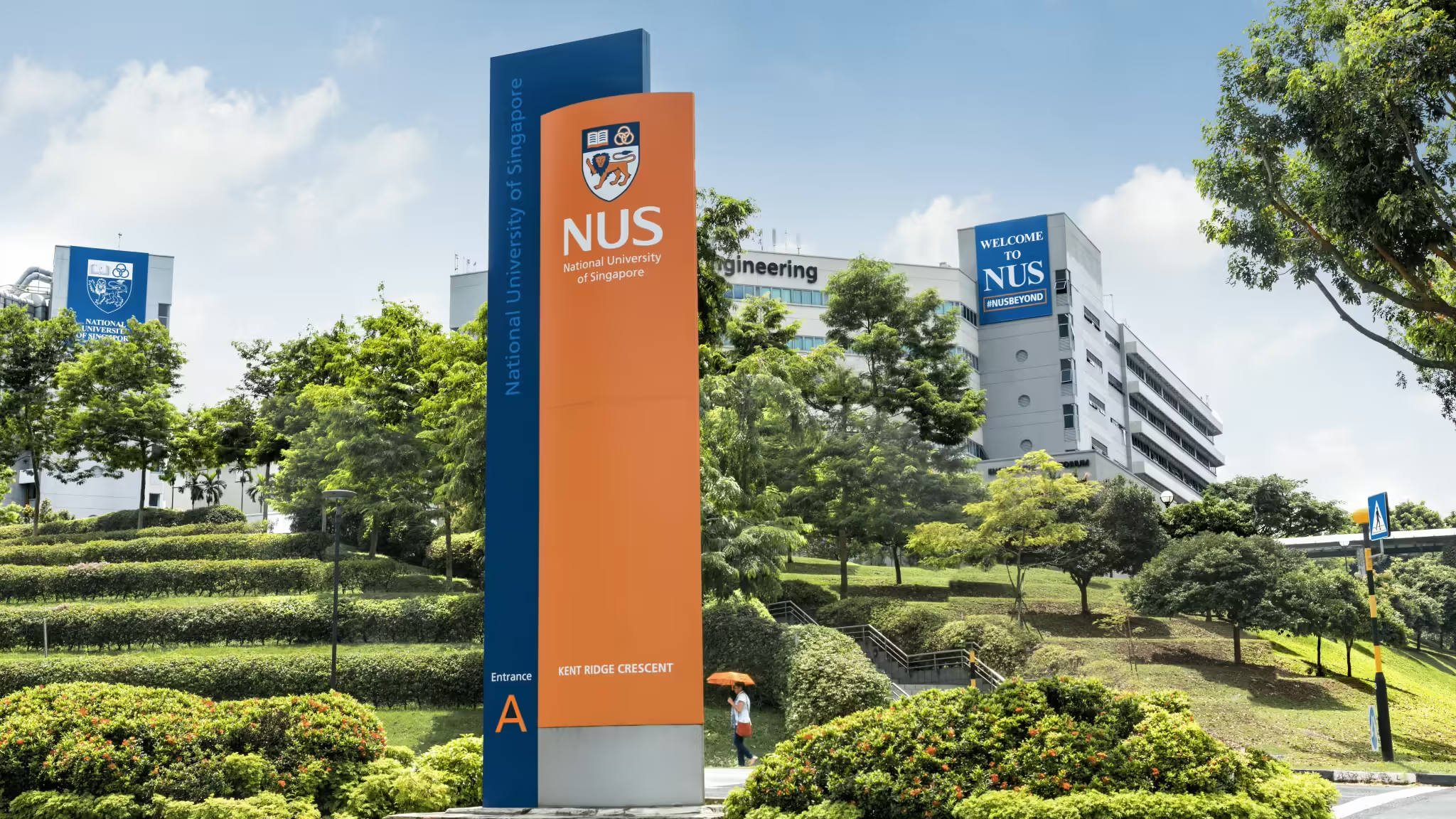

By Associate Professor Mary Chong and Associate Professor Alec Morton.
As artificial intelligence (AI) and digital technologies redefine the way knowledge is created, shared, and applied, postgraduate education stands at a fascinating crossroads. The question today is no longer how much students know, but how effectively they can think, communicate, and act in a world where data and decisions intertwine. At the National University of Singapore (NUS), this shift is not only acknowledged — it is actively shaping the next generation of health professionals and policy thinkers.
The Master of Public Health (MPH) and the MSc in Health Economics and Outcomes Research (MSc HEOR), led by Associate Professor Mary Chong and Associate Professor Alec Morton as programme Directors respectively, exemplify how NUS is preparing graduates to thrive in an era where human insight and ethical intelligence matter as much as technical expertise.
Rethinking postgraduate education in the age of AI
For A/Prof Mary Chong, Programme Director of the Master of Public Health, the real challenge for postgraduate education lies in filtering meaning from the noise. “In an era where knowledge and data are abundant and readily accessible through generative AI and digital platforms,” she explains, “education is no longer about information accumulation but about discernment — the ability to distinguish credible insights from misinformation.”
This evolution, she adds, demands not just technological fluency but also the capacity to apply wisdom, empathy, and ethical judgment in professional contexts. “As the acquisition of knowledge becomes less of a barrier, intangible qualities such as critical thinking, communication, teamwork, and humility become ever more essential,” she says.
A/Prof Alec Morton, who leads the MSc in Health Economics and Outcomes Research, echoes this sentiment but from an industry-facing perspective. “Postgraduate education will remain essential but it will change,” he observes. “As AI takes on routine tasks, education must focus on strategic thinking and continuous learning. Employers will expect graduates to bring high-level insight from day one — and that’s the standard we must prepare them for.”
For both programme directors, the future of employability lies in developing skills that no algorithm can replicate. “Our MPH programme emphasises emotional intelligence and social competence — professionalism, ethics, leadership, teamwork, and communication,” notes A/Prof Mary. “These are critical not only in public health practice but across every field where people and systems interact.”
Students in the MPH programme build these skills through experiential learning — real-world case studies, policy debates, reflective exercises, and hands-on practicums. “We encourage students to challenge conventional thinking and approach problems with curiosity and creativity,” she says. “They emerge not just as professionals, but as adaptive, thoughtful leaders ready to drive meaningful change.”
A/Prof Alec adds that the ability to “bring insights AI cannot provide” will define the value of future professionals. “Employability depends on understanding the human and business context of work,” he says. “That understanding crystallises through interaction — with peers, with teachers, and with ideas. It’s something Socrates would have recognised, but it’s newly relevant in 2025.”
The power of interdisciplinary and experiential learning
At NUS, interdisciplinary collaboration isn’t just encouraged — it’s embedded in the learning experience. “The University provides a supportive environment where students can present and debate their ideas freely, without fear of mistakes or ridicule,” says A/Prof Mary. “In such a setting, classmates become allies rather than competitors, helping students appreciate diverse perspectives and develop humility — a vital quality in any collaborative profession.”
This, she adds, shapes not just intellectual confidence but also emotional maturity. “Students learn that academic excellence doesn’t automatically translate to workplace success. Growth is continuous, and learning extends far beyond graduation.”
A/Prof Alec agrees that experiential learning lies at the heart of effective education. “It’s not just about coding, or statistical analysis,” he says. “It’s about knowing when to use these tools — the meta-skill that defines a true professional. Experiential learning builds precisely that awareness, allowing students to connect theory with context and purpose.”
Building ethically grounded and empathetic leaders
Both educators see universities as moral anchors in a time of rapid technological change.
“Universities must do more than transmit knowledge,” says A/Prof Mary. “They must nurture perseverance, empathy, and the courage to lead with conviction. In an increasingly polarised world, future leaders must learn to collaborate across differences, act with integrity, and remain grounded in purpose.”
A/Prof Alec frames it as a lifelong journey. “Postgraduate education is not the end of learning — it’s the beginning,” he says. “We must teach students not only to know but to listen — to engage respectfully, to stay curious, and to approach the world’s complexity with humility.”
Inside the Master of Public Health (MPH)
The MPH programme at NUS is a rigorous 50-unit course that can be completed in one year (full-time) or two years (part-time). It comprises 26 units of core courses and 24 units of electives.
The core curriculum builds foundational competencies in epidemiology, biostatistics, health systems and policies, and social and behavioural sciences. Electives allow students to specialise in these areas or explore a wide range of public health topics based on their career aspirations.
Graduates of the MPH pursue careers in government agencies, NGOs, hospitals, pharmaceuticals, and research institutes, with many advancing into leadership roles. With alumni across 30 countries, the programme’s influence extends far beyond Singapore, contributing to global health advancements.
MPH graduates stand out for their analytical, interpersonal, and leadership capabilities — from interpreting data to communicating across cultures. Emotional intelligence, critical thinking, and cultural sensitivity further prepare them to tackle complex health challenges with empathy and ethical clarity.
For international students, the MPH offers a globally respected curriculum and practical exposure through hands-on placements in Singapore’s world-class health system. NUS provides visa guidance and merit-based scholarships for exceptional students across Asia. Admissions require a strong academic background, relevant experience, and English proficiency for non-native speakers.
More information: https://sph.nus.edu.sg/education/mph/
Inside the MSc in Health Economics & Outcomes Research (MSc HEOR)
The MSc HEOR is a 40-unit programme completed in one year (full-time) or two years (part-time). It features 24 units of core courses and 16 units of electives.
The curriculum combines evidence synthesis, quantitative methods, economic evaluation, and applied HEOR practice, culminating in a Capstone project. Electives delve into advanced modelling, data analysis, business applications, and policy contexts — giving students the tools to connect research with real-world healthcare impact.
Graduates typically pursue careers in pharmaceutical and MedTech firms, health technology assessment (HTA) agencies, government ministries, consulting firms, and research institutions. Common roles include HEOR analysts, market access specialists, health policy advisors, and consultants.
Their edge lies in mastering cost-effectiveness analysis, evidence synthesis, decision modelling, and real-world data interpretation. Just as crucially, they learn to translate technical insight into policy and payer communication — a skill set that bridges research, policy, and industry.
For international students, NUS offers scholarships, financial aid, and guidance throughout the Student’s Pass process with Singapore’s Immigration & Checkpoints Authority. Capstone projects provide direct exposure to regional health systems, preparing graduates to lead in the growing HEOR field across Asia.
More information: https://sph.nus.edu.sg/education/mscheor/
Education for the mind — and the conscience
In the end, both A/Prof Mary and A/Prof Alec agree that the true hallmark of postgraduate education lies not in the mastery of tools, but in the cultivation of judgement, empathy, and purpose.
As A/Prof Mary aptly puts it, “Education must enlighten the mind and elevate the character.”
And at the National University of Singapore, that philosophy continues to shape professionals who not only navigate the complexities of health and policy — but do so with integrity, insight, and a deep sense of responsibility to the world they serve.
The author Associate Professor Mary Chong, is the programme director of the Master of Public Health (MPH) and Associate Professor Alec Morton is programme director the MSc in Health Economics and Outcomes Research (MSc HEOR), led by and as programme Directors.
DISCLAIMER: The views expressed are solely of the author and ETEDUCATION does not necessarily subscribe to it. ETEDUCATION will not be responsible for any damage caused to any person or organisation directly or indirectly.








